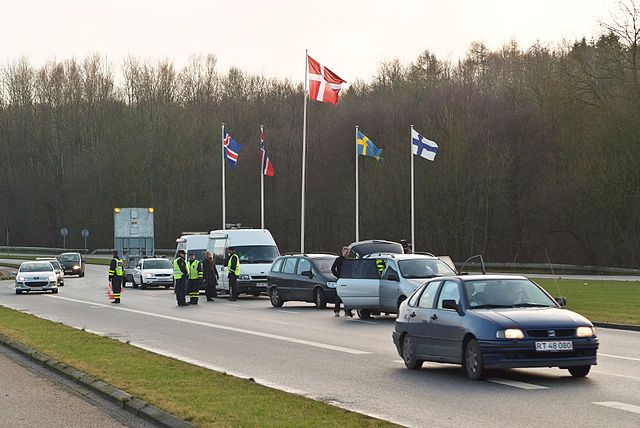Denmark has allied itself with Austria, France, Germany and Norway on a new proposal that, if accepted, will make it possible for border controls to be in place between EU Schengen countries for up to four years.
READ ALSO: Denmark pushing to extend border controls
The proposal was sent to the European Commission ahead of a meeting of the ministers for justice and home affairs held in Brussels today, Ekstra Bladet reports.
“It would be a very, very great advantage if we had more flexibility when it comes to imposing border controls – and also the possibility of keeping them in place longer when there is a need for them,” explained the integration and immigration minister, Inger Støjberg.
Two more years
The proposal suggests that members of Schengen ought to be able to impose border controls for two years, but that this can be extended for an extra two in extraordinary circumstances.
The present legislation only allows for a six-month period in cases when there are threats of terrorism or up to two years in extraordinary circumstances.
There have been border controls in place at the Danish-German border since January 4 last year, and since then the period has been extended several times. However, on September 6, the EU migration commissioner, Dimitris Avramopoulos, warned that further extensions would not be granted.
READ ALSO: EU: Border controls must be ended as soon as possible
Getting real
Støjberg feels that countries should be able to implement controls when they feel like it and keep them as long as they want to.
“It’s not as if the threat of terror stops within three months. We live in the real world, and that’s what we are trying to reflect through border controls,” she said before the meeting.
It seems to work
Up until now, according to Støjberg, 4,300 people have been turned back at the German-Danish border.
“With regard to Denmark, there’s no doubt that border controls have played a really big part in reducing the number of asylum-seekers.”
According to the Udlændingestyrelsen immigration service, in 2015 there were 21,316 people seeking asylum in Denmark. In 2016 the number fell to 6,266. Figures for the first seven months of 2017 show a further dramatic reduction to 1,918.














